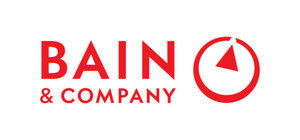Bain survey reveals 60% of gaming executives believe generative AI will not alleviate talent shortage, while just 20% believe it will reduce costs
LOS ANGELES, Sept. 14, 2023 /PRNewswire/ -- More than half of the video game development process will be supported by generative AI within the next five to 10 years, according to new research by Bain & Company.
For its study: "How will Generative AI Change the Video Game Industry," Bain surveyed 25 gaming executives from around the world and found that while most respondents expect generative AI will improve game quality and deliver games faster, few executives (20%) believe that it will reduce development costs. Additionally, 60% of respondents said that they do not expect generative AI to have a significant impact on talent, and therefore do not believe that it will help to alleviate the industry's talent shortage.
"Although most executives we spoke with believe generative AI may free developers from mundane work, they do not believe it will replace the creative spark necessary for game development, emphasizing the importance of human oversight," said Andre James, global head of Bain's Media & Entertainment practice. "Despite implementation challenges, most respondents expect generative AI will affect gaming in ways that are far greater than impacts felt by other technologies such as virtual reality (VR) and cloud gaming."
Evolving use cases
Over the next decade, most executives expect that most use cases for generative AI will emerge within the production stage of the game development process, Bain found. This is a switch from the current trend of generative AI mostly being used during preproduction.
Areas where generative AI will soon play a larger role, according to Bain, include story generation and nonplayable characters (NPCs), game assets, live game operations and user-generated content.
Barriers to implementation
Gaming executives believe that system integration is the leading barrier to generative AI implementation within gaming, Bain found. Other pain points to generative AI adoption considered by survey respondents include data training, lack of technical capabilities, lack of regulatory and legal oversight, and costs of implementation.
Long-term challenges that gaming companies face in terms of generative AI include having a lack of AI strategies, having to navigate a landscape that is nascent and complex, implications that arise when trying to implement the technology, and talent retention issues.
"While it's an exciting time for the industry, games are growing in size and development costs are ballooning," said Anders Christofferson, leading gaming expert and partner within Bain's Media & Entertainment practice. "Enter generative AI, which, if harnessed properly, has incredible potential in addressing industry hurdles while at the same time provides capabilities that can benefit creators, publishers, and consumers."
Four key steps
Four key steps that gaming companies can take to ensure they're maximizing the full value of generative AI include:
- Take a disciplined and deliberate approach to generative AI. Executives taking the time to agree on an ambition and approach alongside appropriate guard rails and governance will improve return on investment and limit risk.
- Base decisions on what will benefit the player. Generative AI can help in many ways, but overreliance could also make it a hindrance. Realize that more content and engagement in a game does not guarantee a better player experience.
- Strategically assess building vs. buying vs. partnering opportunities. Developer-publishers should carefully assess when to build in-house, when to partner with scale players within the ecosystem and when to partner with smaller, niche players.
- Recognize this is more than a technological transformation. Companies will need to stand up a new operating model by redesigning existing work processes, creating new processes, addressing downstream implications, and developing generative AI enterprise architecture strategy.
Media contacts
To arrange an interview or for any questions, please contact:
Katie Ware (New York) — Email: [email protected]
Gary Duncan (London) — Email: [email protected]
Ann Lee (Singapore) — Email: [email protected]
About Bain & Company
Bain & Company is a global consultancy that helps the world's most ambitious change makers define the future.
Across 65 cities in 40 countries, we work alongside our clients as one team with a shared ambition to achieve extraordinary results, outperform the competition, and redefine industries. We complement our tailored, integrated expertise with a vibrant ecosystem of digital innovators to deliver better, faster, and more enduring outcomes. Our 10-year commitment to invest more than $1 billion in pro bono services brings our talent, expertise, and insight to organizations tackling today's urgent challenges in education, racial equity, social justice, economic development, and the environment. We earned a platinum rating from EcoVadis, the leading platform for environmental, social, and ethical performance ratings for global supply chains, putting us in the top 1% of all companies. Since our founding in 1973, we have measured our success by the success of our clients, and we proudly maintain the highest level of client advocacy in the industry.
SOURCE Bain & Company

WANT YOUR COMPANY'S NEWS FEATURED ON PRNEWSWIRE.COM?
Newsrooms &
Influencers
Digital Media
Outlets
Journalists
Opted In





Share this article